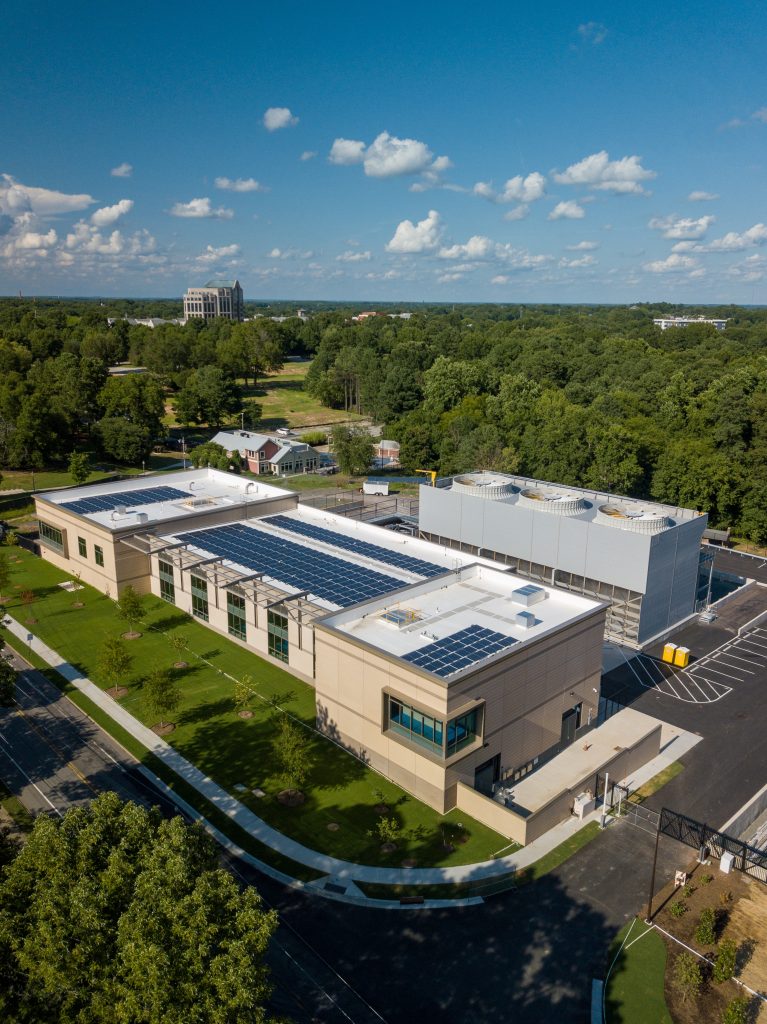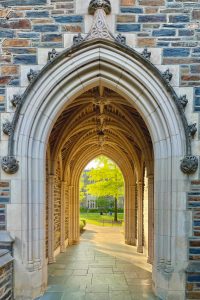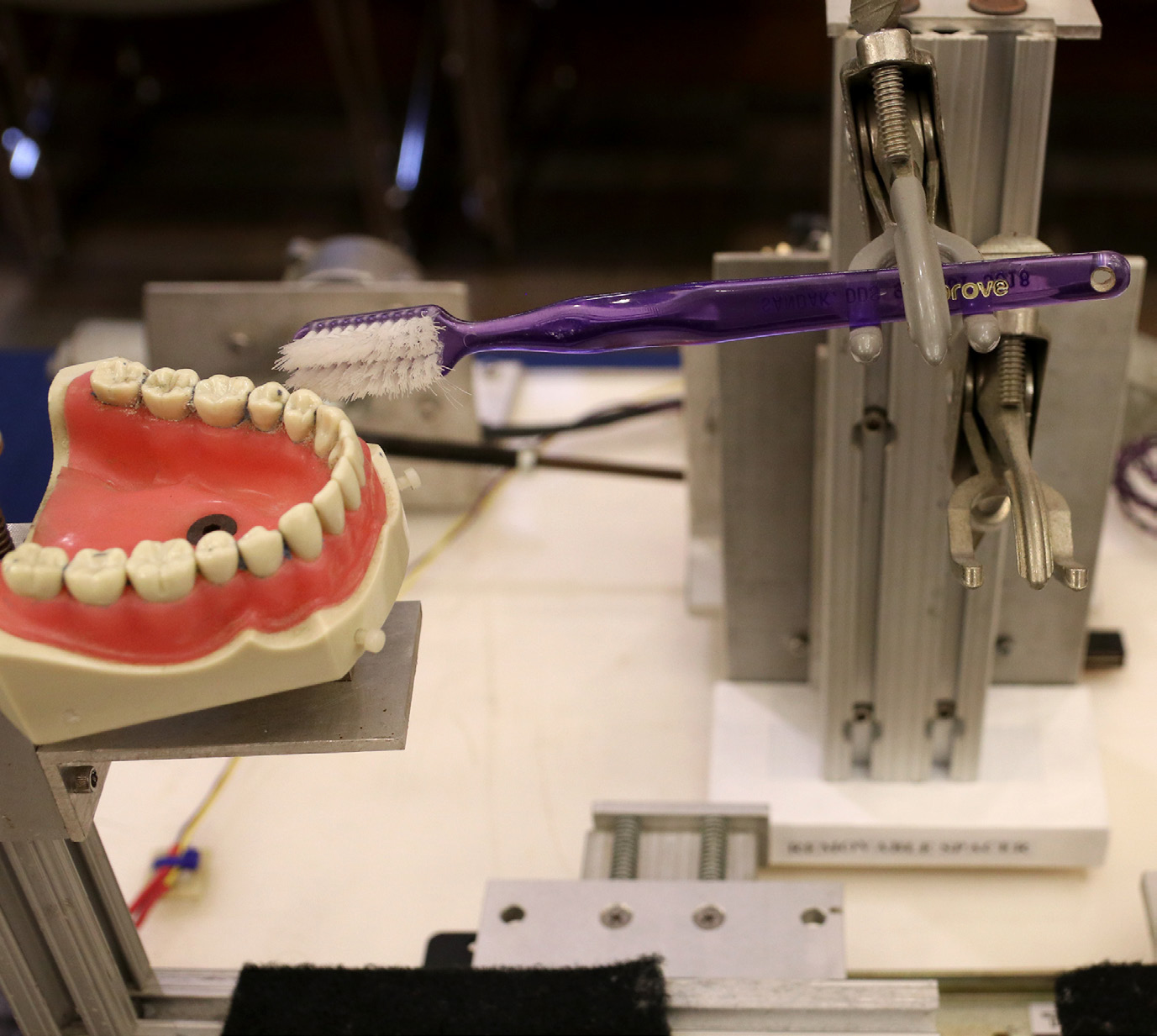Libraries Awarded Funds to Expand Duke Family Archive
As Duke closes out its centennial celebration year, the Duke University Libraries have received more than $1 million to preserve and make accessible a huge collection of historical papers related to the Duke family.
This support includes a $500,000 grant from The Duke Endowment, along with funds from the Mary Duke Biddle Foundation, Mary Duke Biddle Trent Semans Foundation, the Josiah Charles Trent Memorial Foundation Endowment Fund held by Duke University, and the children of Mary Duke Biddle Trent Semans.

With the receipt of the Duke-Trent-Semans family papers, the university now holds materials from the first four Duke generations. The archive offers new insights and stories about the family, the communities around them and their intertwined legacies. Dating back to the 1800s, the archive encompasses the personal and business archives of Washington Duke, James B. Duke, Benjamin N. Duke, Mary Duke Biddle, Doris Duke, and other notable Duke family members.
The new funding will enable us to prepare the papers for use, procure needed preservation materials, digitize portions of the collection, and ensure that Duke family materials are publicly accessible for research and exploration. The project’s focus will be the papers of the late Mary Duke Biddle Trent Semans (pictured), a former Duke trustee who was the granddaughter of Benjamin and Sarah P. Duke.
Honoring Trent Semans’ enduring connection and commitment to Durham, the project will also establish a new community engagement coordinator position based in the David M. Rubenstein Rare Book & Manuscript Library. The coordinator will work with campus partners to strengthen Duke’s relationships with local organizations and neighborhoods, foster collaborations with local cultural heritage organizations, expand access to Rubenstein Library collections and services for local communities, and increase the Duke community’s awareness of Durham history and culture.
“We are grateful for this generous and timely support from The Duke Endowment, the Biddle Foundation, the Semans Foundation, the Trent Fund, and the members of the Duke-Trent Semans family, which will allow us to establish the Duke Family Archive as a comprehensive historical resource,” said Joseph A. Salem, Jr., Rita DiGiallonardo Holloway University Librarian and Vice Provost for Library Affairs at Duke. “We are especially excited about the opportunities to reach out to our community—taking our mission beyond the campus walls and inviting diverse audiences to engage with us in the proud tradition of a family whose impact on our region cannot be overstated.”
With Feuerstein and Feinstein, Libraries Present a Family Weekend Double-Feature
Every October during Duke Family Weekend, we look for a parent of a Duke student who has an interesting job and invite them to share their experiences with other Duke moms and dads. This year we were fortunate to be joined by actor, writer, and director Mark Feuerstein, a familiar face to many on the big and small screens. Best known for his starring role as Dr. Hank Lawson on USA’s hit series Royal Pains, Feuerstein has had recurring roles and guest appearances on such shows as The West Wing, Prison Break, and Sex and the City, and his film credits include Practical Magic, What Women Want, and the WWII epic Defiance, among many others.

Feuerstein and his wife, TV writer and producer Dana Klein, are the parents of Lila, a first-year student at Duke, who interviewed her dad at the event. No stranger to being on stage, Feuerstein shared insights and anecdotes from a long career of entertaining audiences.
Later that same weekend, we were proud to partner with Duke University Press on a talk with John Feinstein T’77, author of the new book, Five Banners: Inside the Duke Basketball Dynasty, in conversation with Coach Mike Krzyzewski.
In the book Feinstein, who covered Duke’s men basketball as a student reporter for the Duke Chronicle and later for the Washington Post, Sports Illustrated, ESPN, and NPR, tells the inside history of Coach K’s forty-two-year career at Duke and its five NCAA championships. Through his close friendships and conversations with Coach K, Grant Hill, Nolan Smith, Christian Laettner, Tommy Amaker, Bobby Hurley, and others, Feinstein takes readers on a mesmerizing ride into the locker room and onto the court.

As a sports commentator, Feinstein is used to covering Duke basketball with a reporter’s objectivity. But Five Banners allowed him to fully embrace his roots and tell the story of one of the most impressive sports dynasties of all time. Through his unparalleled access to one of the winningest college basketball coaches ever, Feinstein offers a blueprint of what leadership looks like and how greatness is made. The book is available from Duke University Press.
Meanwhile on the Socials: A Little Library 101
With over eight million volumes spread across ten libraries and two campuses (plus Duke Kunshan and the Duke Marine Lab!), it can be daunting to find what you’re looking for in a large research library system like Duke’s—especially if no one has ever explained it before.
That’s a frequent refrain our librarians hear from incoming Duke undergrads, many of whom are experts at online searching but aren’t as practiced at “old school” research skills like using a Library of Congress call number to find a book in the stacks.
To help them out, we recently boiled it down into a two-minute video for social media. Students can follow along with the “Littlest Blue Devil” as he finds a book in our online catalog and uses the call number to track it down and check it out. The video has already been viewed over a thousand times across Instagram, Facebook, and YouTube and is being used in library orientation sessions. It’s a good reminder that even at top-ranked universities like Duke, students often need help getting up to speed on college-level research. That’s why they have friendly Duke librarians to help them find what they’re looking for.
How Can Libraries Help the Climate? Stop Trying to Be So Cool.
Like many parts of campus, we’ve been trying to reduce our energy consumption in support of the Duke Climate Commitment.
With nearly 610,000 square feet of combined space, our library buildings have one of the biggest physical footprints on campus outside of the Duke Medical Center. That means we also have some of the university’s highest heating and cooling costs.
Bringing those costs down represents an obvious goal—but only if it can be done in a way that keeps the millions of books on our shelves at mold-free temperature and humidity levels.

One solution we tried this year, in partnership with Duke’s Facilities and Maintenance Department (FMD), may sound familiar to anyone who has a “smart” thermostat at home. We started turning the air off when it’s least needed.
From January to May 2024, Duke FMD piloted a series of controlled HVAC shutdowns in Perkins and Bostock Libraries overnight when the buildings were closed. Whenever the dew point outside fell below 55 degrees Fahrenheit, the air handlers in the two libraries would automatically shut off and turn back on at pre-programmed intervals. In this way, conditions inside the climate-controlled book stacks never deviated far from normal.
Using environmental sensors placed throughout the stacks, the Libraries’ Conservation Services Department carefully logged temperature and humidity levels in order to monitor the impact on library collections over the five-month trial period. Happily, the impact was little to none.
The impact on energy consumption, on the other hand, was significant.
According to FMD, the controlled HVAC shutdowns conserved 7.1 million pounds of steam and 100,000 tons of chilled water used by Duke to heat and cool campus buildings. That’s the equivalent of 502 metric tons of carbon dioxide not released into the atmosphere, the same as keeping 125 gas-powered cars off the road for an entire year. The financial benefit was likewise eye-opening, saving the Libraries $210,000 in annual utility costs.
Given the successful proof of concept, FMD will continue implementing controlled HVAC shutdowns as part of our normal library building operations whenever the weather permits. And we will continue to monitor the environmental conditions in our buildings to make sure that Duke’s priceless research collections are preserved for future generations.
Thanks to creative energy-saving ideas like this one, Duke was able to announce earlier this fall that the university has fulfilled its 2007 pledge to become carbon-neutral by 2024—one of only fourteen U.S. colleges and universities to meet that milestone.
Feeling Like a Student Again

This group of Duke alumni recently got an up-close look at some of the Rubenstein Rare Book & Manuscript Library’s most fascinating treasures as part of “The History of the Book,” a class taught by Clare Woods, Associate Professor of Classical Studies, for the inaugural Duke Forever Learning Summer Academy. It’s a condensed, one-week version of the same course Woods has taught at Duke for years, investigating the history of the “book” as a physical object from its earliest forms to artists books and digital texts. Drawing on rare and historic primary source materials from the Rubenstein Library, program participants learned how book production changed over the centuries, from ancient Greece and Rome through medieval monastic scriptoria to the printing presses of the early modern world. Combining the intellectual stimulation of college with the camaraderie of summer camp, the Forever Learning Summer Academy provides an immersive week-long educational adventure in July and August for Duke alumni and friends. Find out more at alumni.duke.edu/forever-learning.
Libraries Partner with University IT and Research Offices to Meet Growing Needs of Duke Researchers
 As the amount of computational data we generate as a society keeps increasing, so does the complexity of conducting, sharing, and publishing data-intensive research. Every year, Duke researchers must spend more and more time navigating a maze of funding agency data requirements, IT security regulations, and data storage solutions, instead of focusing on the core work enabled by the data itself: discovery, innovation, and scholarship.
As the amount of computational data we generate as a society keeps increasing, so does the complexity of conducting, sharing, and publishing data-intensive research. Every year, Duke researchers must spend more and more time navigating a maze of funding agency data requirements, IT security regulations, and data storage solutions, instead of focusing on the core work enabled by the data itself: discovery, innovation, and scholarship.
This fall, we were excited to announce a new faculty-centered initiative designed to streamline the administrative processes of data-driven research at Duke, optimize IT infrastructure, and empower our faculty researchers to do what they do best—make new discoveries. Known as the Compute & Data Services Alliance for Research (CDSA), it’s a joint effort of the Duke University Libraries, Office of Information Technology, and the Office for Research and Innovation—each of which touch the research enterprise at Duke at different stages and support Duke researchers in different ways.
The CDSA is already underway with a phased rollout and expansion of a dozen of the most highly requested research services identified by Duke faculty, including hiring additional research support staff. Here in the Libraries, we have already added a Research Data Management Consultant, Data Visualization Analyst, Senior Applications Developer, and a Digital Humanities Consultant this year, adding much-needed capacity to meet the level of demand. Additional positions will be added in the coming years in support of CDSA-aligned services.
The ultimate goal of the collaborative venture is to simplify the complete research lifecycle—from the early planning stages to final publication and archiving—thereby increasing the visibility, reproducibility, and impact of research conducted at Duke.
Giving Duke Engineers Something to Chew On
This September we hosted a special library open house especially for students, faculty, and staff from the Pratt School of Engineering. The event offered attendees a chance to interact with some fascinating and unusual items from the Rubenstein Rare Book & Manuscript Library—like this toothbrush testing machine from the Consumer Reports Archives. Over 100 students and faculty members attended to get a taste of the wide variety of collections we hold on the history of science and engineering, including many they might not expect.

Scene from Summer Camp

Meredith Parker-Terry, Librarian for Psychology and Neuroscience (above), paints a watercolor during Duke Libraries Summer Camp, a three-week series of professional development workshops organized over the summer to foster peer-to-peer learning and building connections across the many units of our organization. This year’s “campers” could try their hand at Risograph printing, bookbinding, historical board games, and the world of competitive Scrabble. At the same time, they learned about project management, having difficult conversations at work, improving their presentation skills, and more. The event concluded with a handicraft showcase, where staff got a chance to share their artistic and creative talents with each other. Started in 2019, Duke Libraries Summer Camp has become an annual tradition, offering our staff a chance to benefit from each other’s expertise in a relaxed and fun-filled atmosphere.

